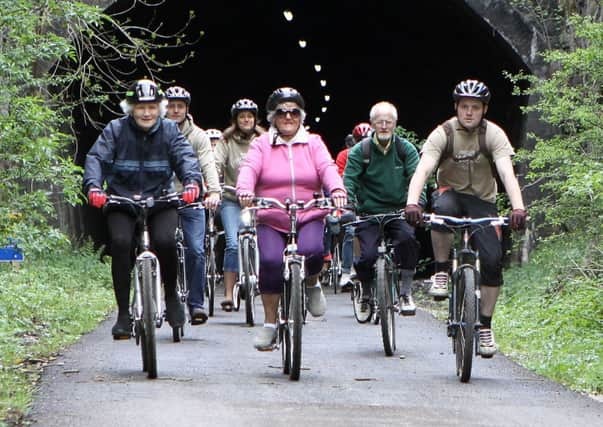£5m funding green light for Peak cycle route plan


It is hoped the Pedal Peak project will provide a major boost for tourism in the area, putting an estimated 3.5million people within reach of the Peak District National Park cycle network.
Four new trails are proposed as part of the project.
They include 11 miles of the White Peak Loop, linking the High Peak Trail and Monsal Trail with two new sections − one between Matlock and Bakewell and another between Buxton and Hurdlow.
Advertisement
Hide AdAdvertisement
Hide AdThe Little John Route and Hope Valley Link − Hope Valley Link would provide an off-road route between Bamford and Hathersage.
Tony Favell, chair of the Peak District National Park Authority, said: “This is wonderful and exciting news for the Peak District. It is great for family cycling and for walkers too. It gives road cyclists alternative routes and eases traffic congestion. It will boost healthy living for people in the big cities of Sheffield, Derby, Nottingham and Stoke and at the same time benefit national park residents and rural businesses.
“There is a huge amount of work involved in opening up these four cycle-ways and there will be public consultation on the precise routes to be taken, but investing in traffic-free trails is a win, win situation for everyone and the environment.”
Councillor Joan Dixon, Derbyshire Cabinet Member for Jobs, Economy and Transport, said: This is fantastic news for Derbyshire.
Advertisement
Hide AdAdvertisement
Hide Ad“Boosting our local economy is at the top of our agenda so anything we can do to improve tourism and open up our county’s beautiful countryside to attract new visitors is most welcome.
“We will consult fully with local people on each of the routes and we will need to gain planning permission before any work can start.”
This is the second phase of the Pedal Peak project. Phase one to extend and enhance the Monsal Trail was carried out last year by the Peak District National Park Authority.
The project involved opening up disused railway tunnels along the Midland Railway Line which closed in 1968.
Planning applications for the four routes are expected to be submitted over the next year and the routes are expected to be completed by 2016.